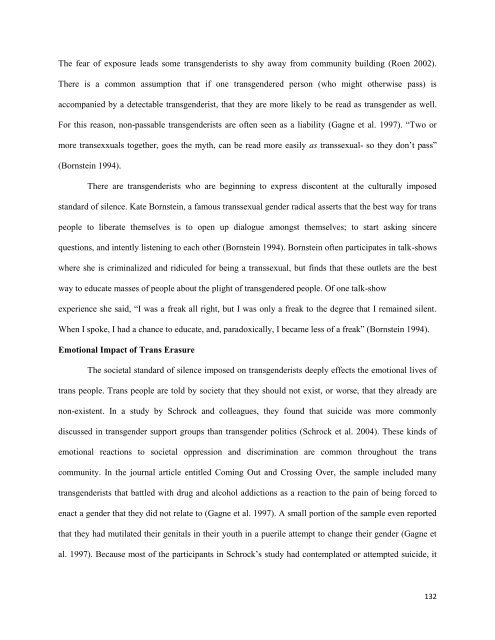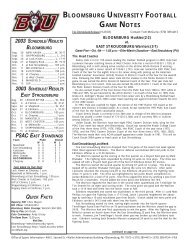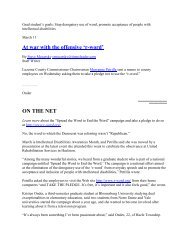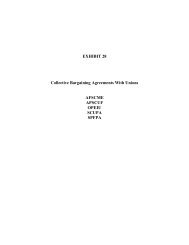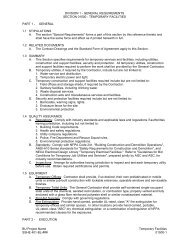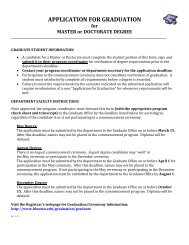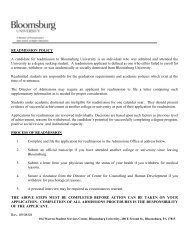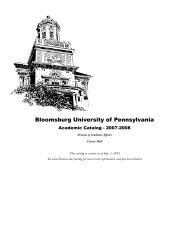Human Rights at Home and Abroad: Past, Present, and Future
Human Rights at Home and Abroad: Past, Present, and Future
Human Rights at Home and Abroad: Past, Present, and Future
Create successful ePaper yourself
Turn your PDF publications into a flip-book with our unique Google optimized e-Paper software.
The fear of exposure leads some transgenderists to shy away from community building (Roen 2002).<br />
There is a common assumption th<strong>at</strong> if one transgendered person (who might otherwise pass) is<br />
accompanied by a detectable transgenderist, th<strong>at</strong> they are more likely to be read as transgender as well.<br />
For this reason, non-passable transgenderists are often seen as a liability (Gagne et al. 1997). ―Two or<br />
more transexxuals together, goes the myth, can be read more easily as transsexual- so they don‘t pass‖<br />
(Bornstein 1994).<br />
There are transgenderists who are beginning to express discontent <strong>at</strong> the culturally imposed<br />
st<strong>and</strong>ard of silence. K<strong>at</strong>e Bornstein, a famous transsexual gender radical asserts th<strong>at</strong> the best way for trans<br />
people to liber<strong>at</strong>e themselves is to open up dialogue amongst themselves; to start asking sincere<br />
questions, <strong>and</strong> intently listening to each other (Bornstein 1994). Bornstein often particip<strong>at</strong>es in talk-shows<br />
where she is criminalized <strong>and</strong> ridiculed for being a transsexual, but finds th<strong>at</strong> these outlets are the best<br />
way to educ<strong>at</strong>e masses of people about the plight of transgendered people. Of one talk-show<br />
experience she said, ―I was a freak all right, but I was only a freak to the degree th<strong>at</strong> I remained silent.<br />
When I spoke, I had a chance to educ<strong>at</strong>e, <strong>and</strong>, paradoxically, I became less of a freak‖ (Bornstein 1994).<br />
Emotional Impact of Trans Erasure<br />
The societal st<strong>and</strong>ard of silence imposed on transgenderists deeply effects the emotional lives of<br />
trans people. Trans people are told by society th<strong>at</strong> they should not exist, or worse, th<strong>at</strong> they already are<br />
non-existent. In a study by Schrock <strong>and</strong> colleagues, they found th<strong>at</strong> suicide was more commonly<br />
discussed in transgender support groups than transgender politics (Schrock et al. 2004). These kinds of<br />
emotional reactions to societal oppression <strong>and</strong> discrimin<strong>at</strong>ion are common throughout the trans<br />
community. In the journal article entitled Coming Out <strong>and</strong> Crossing Over, the sample included many<br />
transgenderists th<strong>at</strong> b<strong>at</strong>tled with drug <strong>and</strong> alcohol addictions as a reaction to the pain of being forced to<br />
enact a gender th<strong>at</strong> they did not rel<strong>at</strong>e to (Gagne et al. 1997). A small portion of the sample even reported<br />
th<strong>at</strong> they had mutil<strong>at</strong>ed their genitals in their youth in a puerile <strong>at</strong>tempt to change their gender (Gagne et<br />
al. 1997). Because most of the participants in Schrock‘s study had contempl<strong>at</strong>ed or <strong>at</strong>tempted suicide, it<br />
132


